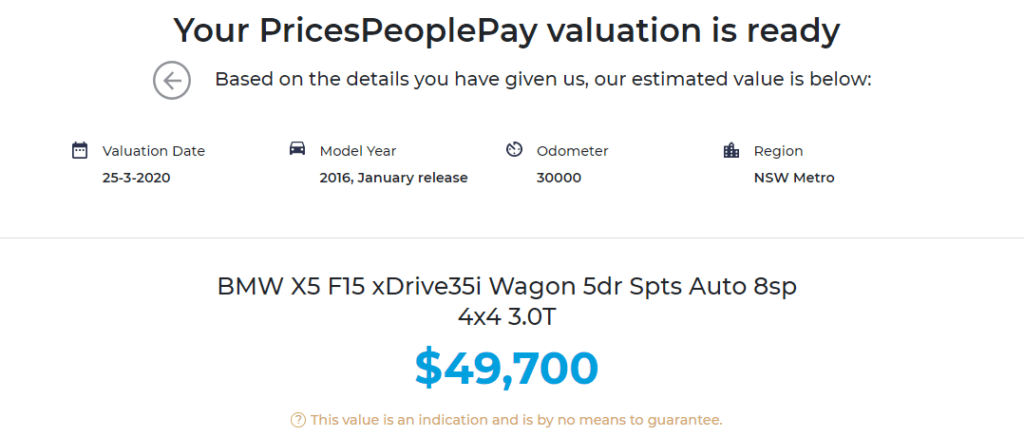Your car is usually the second largest purchase you’ll make in your lifetime and like any asset it’s important to know what it’s underlying value is.
This is even more important during turbulent times where car prices go up or down.
With the world reeling from the COVID-19 pandemic and many countries under quarantine, this is certainly one of those turbulent times.
At Prices People Pay we wanted to communicate:
- what factors influence the value of your car (even in unstable markets)
- how to best value your car
- why it’s important to have this information handy
If you want to jump straight to getting the most accurate market value on your car, then head over to this free market value calculator.
What influences the market value of your car?
Market Conditions
When you’re valuing your car, market conditions at the time will highly influence its underlying value.
During times where market conditions are extremely positive, your car’s value may be inflated. The opposite occurs during times where market conditions are particularly negative.
As reported by our data partner, Datium Insights, there is a high chance that used car prices will drop. This is because of what’s happening to our economy here in Australia, as well as what’s happening overseas.
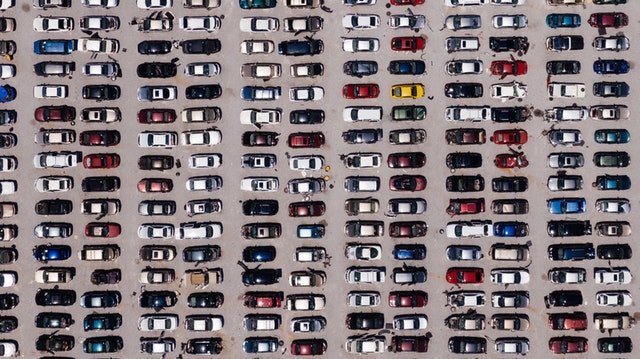
As most of us know, the Coronavirus pandemic has caused many nations to impose severe restrictions on peoples’ movement. The list of nations is growing larger by the day and includes the largest economies in the world, including the USA, China, Germany and Japan.
These nations drive so much economic activity globally that when their activity declines it affects nearly every region in the world, including ours.
The consequence is we all collectively spend less of our money.
This means businesses receive less income, affecting their ability to retain workers. If businesses cut employees then those people have even less money to spend, which means other businesses receive less income also.
This trickle-down effect cycles through the country until we enter a phase that economists call a recession.
When it comes to cars, sellers can start to have a tough time in a recession.
If people are less willing to spend money, then sellers have a harder time finding buyers to pay their asking price.
The natural reaction for sellers is to lower their price until a buyer comes along that is willing to pay that price.
During times of recession, spending usually drops so much that sellers have to drop their prices significantly to find people to buy their cars. This is what many are predicting to happen here in Australia, as well as other countries around the world.
If a car’s market value was $10,000 three months ago, then the exact same car (same age, same mileage etc) may have a lower market value now.
In another three months time it may have an even lower market value if we really do enter a recession.
Mileage
A car, unlike many other types of assets, is also a usable good.
Unlike a painting or sculpture, car’s aren’t just assets that we look at (with the exception of those lucky cars in museums).
Like any usable good, a car will deteriorate in it’s usability the more you use it. Some cars may deteriorate quicker, while others slower, but they all deteriorate at their own unique rate.
The best indicator of a car’s usage, and hence its deterioration, is its mileage (the odometer reading).
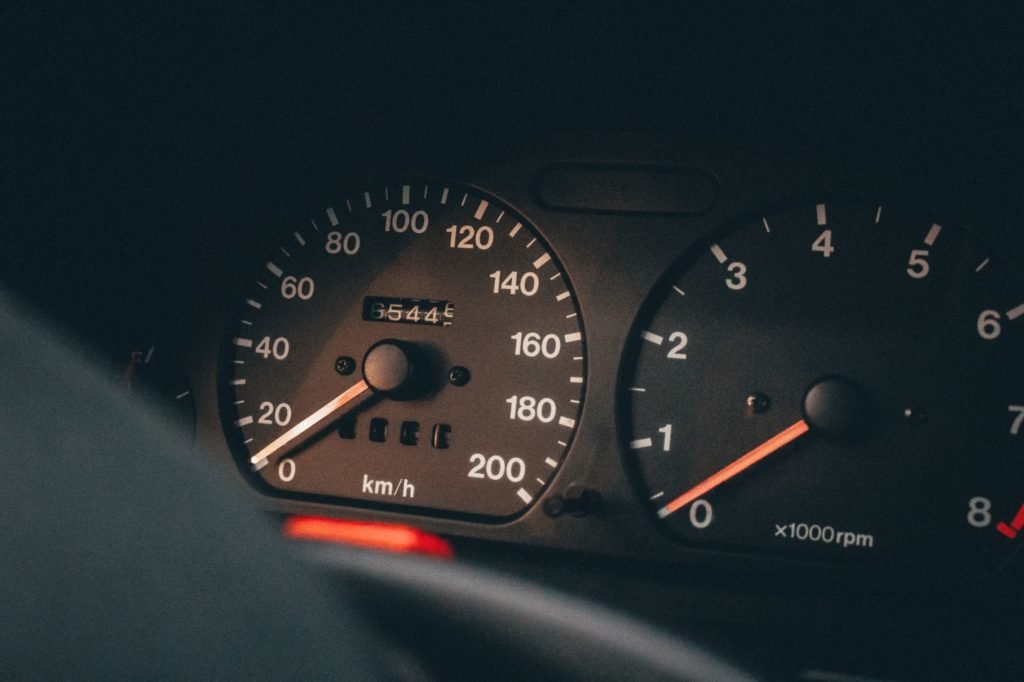
The more the car is driven, the more it’s likely deteriorated.
However, your car’s mileage on it’s own isn’t necessarily what’s most important.
What’s most important is how your car’s mileage compares to the mileage of other similar cars.
If you find your car has higher mileage in comparison to similar cars available in the market, then there’s a good chance the market value of your car will be lower.
The opposite is true if your mileage is lower.
When it comes to mileage, knowing your own car’s mileage is not enough. You also need to understand the average mileage of similar cars available in the market.
Age
Like any physical asset, a car’s age will also influence its value.
Combined with your car’s mileage, these two factors have the largest influence on your your car’s underlying market value.
In 2016, the world manufactured over 72 million cars. These cars had better technology, safety, efficiency among other traits then their counterparts from 2015.
Every year, better cars are produced then the year prior. Because of this, older cars are nearly always worth less than newer ones.
A Picasso painting will never be produced again, which is why Picasso’s painting’s generally go up in value.
A 1962 Ferrari GTO that won the 1964 Tour de France will never be produced again (note: it sold for $70 million in a private sale), which is why it will likely go up in value over time as well.

But if you’re like most of us, driving a car made by one of the dozens of mainstream car brands from around the world, it’s likely a better version of your car will be produced next year.
This is why older cars are worth less than newer ones.
Type of Car
Do you drive a SUV or a sedan? Do you drive a Volkswagen or a Toyota? Is your car an automatic or a manual?
In Australia, we have huge diversity in car types that most other nations don’t have. But just like other industries, the car industry is prone to changes in consumer tastes.
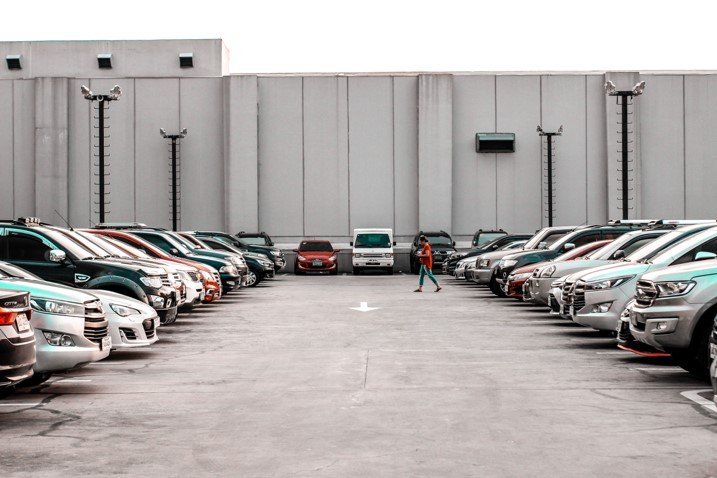
What’s popular today may not be popular tomorrow.
Car’s that no longer fit our consumer tastes will undoubtedly see their market value decline.
In Australia, SUV sales made up 43% of all new car sales in 2018. It was the first year where they made up the lions share of sales, after 15 years where passenger vehicles were the most popular.
If you’re driving a manual car in Australia you may be one of the last few. In 2018 only 9.2% of new cars sold were manual.
Even though electric cars are sold in smaller quantities in Australia compared to the rest of the world, their sales still tripled in 2019.
On the other hand, combustion vehicle sales saw a 7.8 percent decline in 2019.
Where your car sits in popularity in the market has an effect on it’s demand. The lower demand that it attracts the lower its market value will likely be.
Condition
While the condition of your car seems like an obvious factor in determining it’s market value, there is a little more to it.
Like many of the factors described above, the condition of your car and it’s effect on the market value, is also related to the condition of other similar cars available in the market.

Newer cars in the market have generally had less time to get damaged, encounter hail storms, or be involved in accidents.
As a result, the variation in condition for newer cars is generally less compared to older cars.
What this means is most newer cars are generally in good condition with a smaller portion in bad condition.
However, for older cars that have potentially gone through multiple owners, travelling through various regions of Australia and seeing all the different climates that our country has to offer, the condition can greatly varied.
That is why older cars see greater variation in their condition.
If you’re driving an older car, making sure it’s in great condition will give it a better chance of standing out in the crowd and having a higher market value.
Location
Unlike a house which is rooted in its location, a car can be transported far and wide.
Most of Australia’s car fleet is located in it’s capital cities, with Sydney and Melbourne harboring the majority.
These cities provide a large marketplace of buyers and sellers to support trading of cars. As a result, prices in these cities generally tend to be less affected by the particular area the car is located in.
However, once you exit these cities and enter more regional areas of Australia these dynamics begin to change.

The types of cars that are in demand in capital cities may not be in demand within regional areas of Australia. Furthermore, particular regions may support industries that attract certain types of cars at the expense of others.
For example, we know through our data at Prices People Pay that prices for cars in North Queensland are generally weaker compared to the rest of Australia.
This is because the market in North Queensland is driven by tourism which experiences greater seasonal volatility. Because of this increased volatility buyers and sellers are more conservative in their pricing, wary of quick changes in the tourism industry.
The local economy where you’re situated will influence the underlying attractiveness of your car and it’s market value.
Time of year
Planning on selling in winter? You may want to think again.
Like many assets, cars have a seasonal aspect when it comes to their market value. Market activity fluctuates throughout the year, with peaks and troughs.
At Prices People Pay we know through our data that prices for used cars generally weaken in the winter months compared to the summer months. While this varies depending on the region of Australia, the overall trend is fairly consistent year after year.
There are a number of factors that cause this.
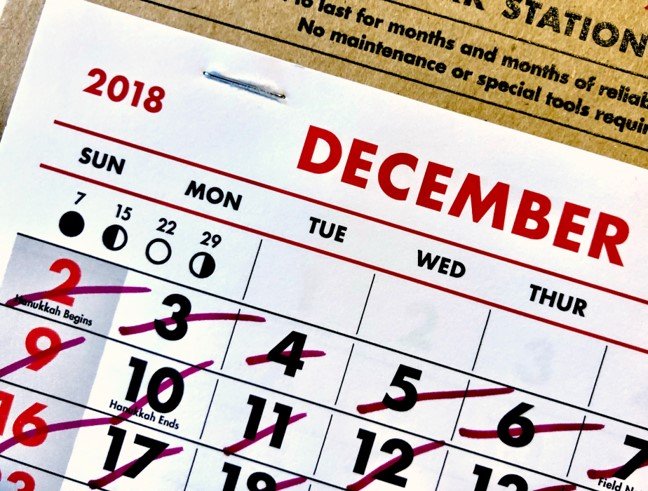
One of these surprisingly is the weather. Similar to house prices, car prices generally fair better during periods of sunny weather.
Studies have also shown that peoples’ moods are affected by the weather, with dark or dreary weather causing people to be more susceptible to negative moods.
During periods of pleasant weather there is a higher likelihood of foot traffic that takes place, encouraging greater spending on assets such as cars which generally require a physical presences as opposed to a digital one.
Because summer months generally enjoy stronger bouts of sunny days, the weather naturally encourages higher prices to occur.
Another factor, one that is quite unique to cars, is Australia’s tax system. In Australia our financial year ends in June and a large number of significant discounts are offered to new car buyers every June.
Because of this, demand begins to shift away from near-new used cars towards new cars which have suddenly seen their prices drop.
As a consequence, prices for used cars see some weakening due to the lessened demand.
Combined with the effects of weather, these two factors induce weaker prices during winter months. If you’re determining the market value of your car in winter, it’s likely to be slightly lower compared to summer.
Car Supply
From a low in 2009, new car sales in Australia increased 26.8% to achieve nearly 1.2 million sales in 2017.
Since then however we’ve experienced 2 years of consistent decline in new car sales. What that means is the supply of cars entering the used car market has gotten smaller and smaller the past couple years.
As a consequence, growth of cars in the used car market has also fallen.
When the supply of cars in the used car market increases rapidly it means buyers have an increasingly larger choice of cars to choose from. Because competition between sellers is increased, prices generally fall as sellers look to undercut each other.
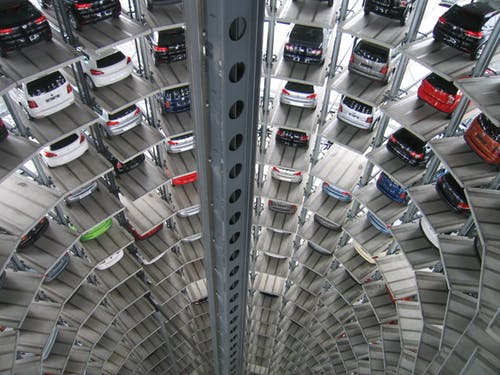
Because growth of used car supply has slowed the past couple years, so has the intensity of competition between sellers. As a result, sellers are able to charge comparatively higher prices for used cars.
During periods of strong supply growth, prices generally drop and this is the opposite when supply growth weakens.
While this dynamic holds when the market is stable, it starts to unravel during times when the market is turbulent.
As explained above, if consumer spending declines (which means buyer activity declines), any reduction in supply growth is not likely to result in higher prices.
On the contrary, during times of recession, an intense decline in consumer spending can result in prices dropping irrespective of large movements in supply.
Which party are you
Are you selling your car to a dealer? Are you looking to purchase your next used car at an auction?
Which side of the transaction your on and who you’re dealing with will affect the price of the car. However, what’s important to note is the underlying market value of the vehicle doesn’t change.
Here at Prices People Pay we source used car pricing data from all over the country, including sales from dealers and auctions. We know from this data that prices achieved in retail channels (meaning dealerships or online classifieds) are higher than prices at auctions.
If you’re looking to sell your car, and you’re willing to wait for the best price, you might be better off listing on one of the numerous online classifieds available.
While the underlying market value of your car is unchanged, you may be able to achieve inflated selling prices for your car due to the nature of online classifieds. On the other hand, if you’re looking for convenience and a quick sale, you might be better off selling at an auction.
Similarly, if you’re a buyer there’s advantages and disadvantages to buying privately, from a dealer or at an auction. We’ve summarized these in our previous post “Where to Buy Your Next Used Car”.

What are the best ways to value your car?
For most people the quick answer is online classifieds. While this can be a good start and is a great way to educate yourself on the diversity of cars available, it does have one major drawback.
Anyone that’s spent time valuing assets knows that the value of an asset is only what someone’s willing to pay for it. Without knowing the price the asset sold for, it’s impossible to accurately determine an asset’s actual market value.
Having transparency in what cars are actually selling for provides people the ability to accurately determine the market value of a car.
Online classifieds unfortunately do not provide this transparency, as the prices you see are listed prices. Meaning these prices are what the seller desires to sell the car for, not what the car actually sells for in the end.
At Prices People Pay we’ve aimed to provide the market with this transparency.
We have over 60,000 used car prices from the past 12 months available to view. These are actual sold prices that people have transacted for. A quick search lists over 3,000 Toyota Camry’s to view as of right now.
Additionally, we’ve built a free valuation calculator that utilizes all this data to determine the most accurate market value for your car.
For example, a quick search for a BMW X5 xDrive35i with 30,000 kilometers yields a market value of $49,700 in metropolitan NSW.
Why is it important to know your car’s market value?
While there are several reasons, the most important one is this: the car we own holds a significant portion of our wealth.
It’s why your car’s market value is assessed in a home loan application, or why it’s taken into account in any assessment of a business’s overall worth.
With any asset we own, it’s important to understand it’s underling market value in the occurrence we need to liquidate it for cash.
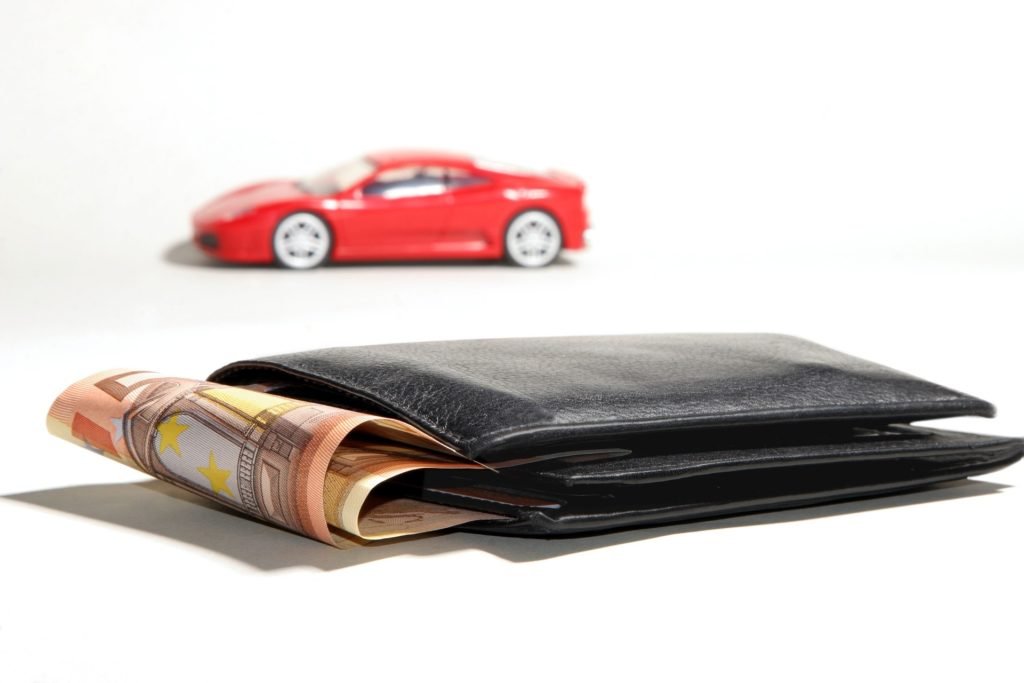
For car owners who have a loan against their vehicle, knowing your cars market value gives you certainty around your future debt obligations.
For people who have a balloon included in their loan, are leasing their car or are utilizing a guaranteed future value product, its even more so important as it will determine what financial decisions you take at the end of your term.
If you’re looking at comprehensive car insurance and the amount of excess you might need, having clarity on your cars market value can have an impact on your finances.
If you’re a small business that owns a fleet of cars, having a clear understanding of the amount of capital you have tied up in your fleet can help you make decisions when looking to up-size or downsize your business.
What’s common in all those scenarios however is that we all want to make sure we get a fair return on the wealth we have tied up in our cars.
The best way to do this is by having clear, accurate market values readily available.
Disclaimer: This is a general information service only and we do not provide advice or take into account your personal circumstances, financial situation or needs. Please seek professional advice with regards to how any of the material on this website can impact your own financial situation. Prices People Pay is not liable for any loss caused, whether due to negligence or otherwise arising from the use of, or reliance on, the information provided directly or indirectly, by use of this website.


